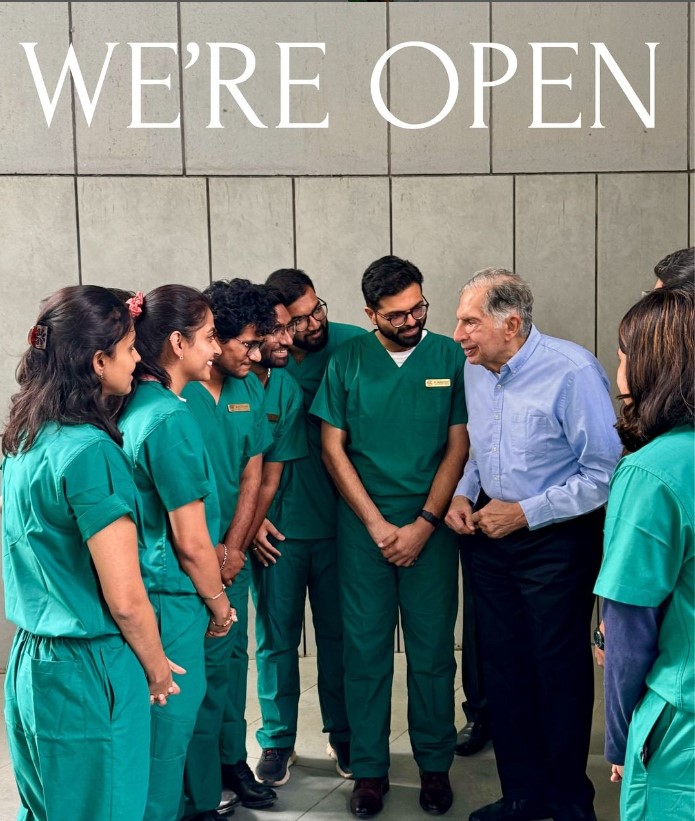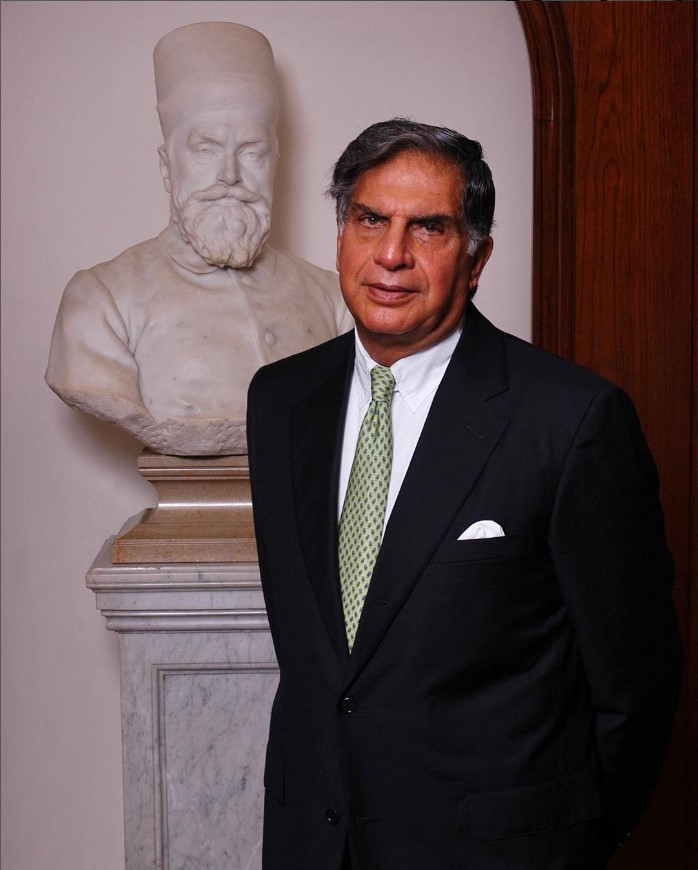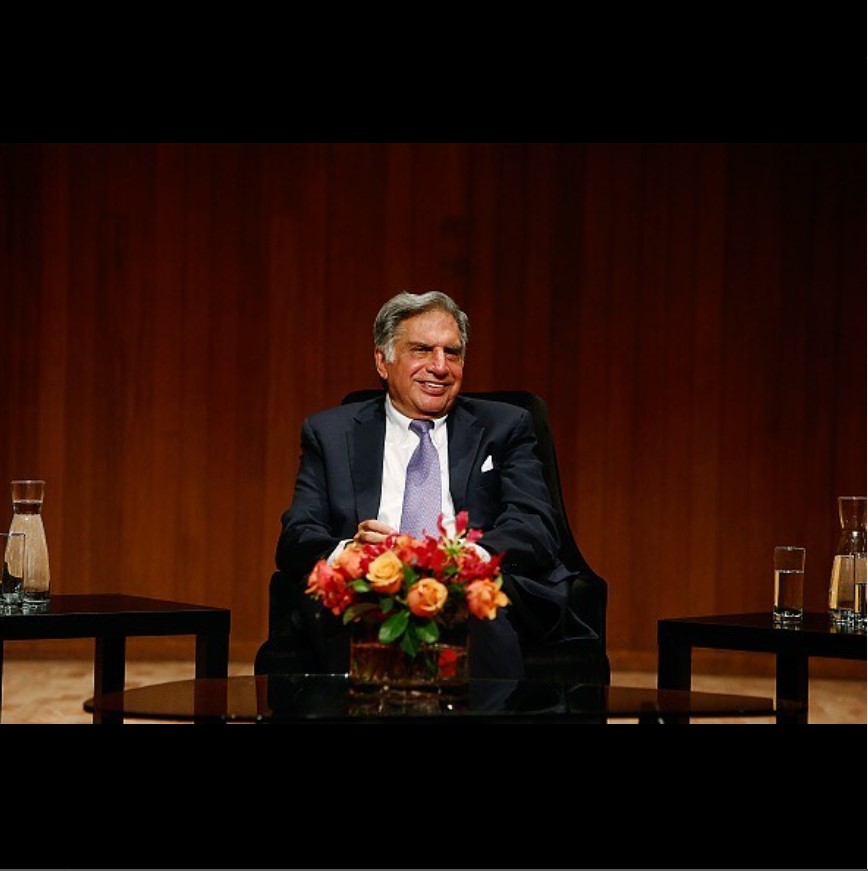Ratan Tata-the underplayed, soft-spoken chairman emeritus of Tata Sons, carrying on his shoulders one of India’s most iconic business legacies-but actually having constructed his own version, fashioned from values, resilience, and a deep experience of responsibility-walks through the steel doors of his office building into a world that has become a public playground. A biopic on Ratan Tata would not just be a story of corporate success and boardroom drama. To really pay tribute to him perhaps the movie will capture an essence of a man whose life transcends commercial enterprise, somebody who has touched tens of millions through his philanthropy, shaped international industries through his foresight and remained humble and grounded through it all.
The Humanitarian At Heart

What separates Ratan Tata from most of his friends is the strong commitment he has towards philanthropy. A sizeable portion of the wealth created by the Tata conglomerate is spent on charitable causes that benefits every section, ranging from health and education to rural development and medical science.
Measured in size by the estimates of personal fortunes, the titans of corporate power are usually, but not in Ratan Tata: he proved to be a person who had taken a specific road. Under his management, the Tata group’s leading company, Tata Sons, owns two-thirds of Tata institution, and these shares are kept in benevolent trusts. This model ensures that a vast majority of the business firm’s profits goes into social causes, a model of responsible capitalism that few within the world can claim to have.
A biopic which focuses on this aspect of his life might focus on how Ratan Tata always put the good of society above personal wealth. The movie should depict moments wherein he let go of profitable opportunities that appear to encroach on his morality, choosing instead to hold on to what he considered became the better. for example, during the historic moment of acquisition of Corus metals, the choice of Tata was no longer for pure economic reasons but for the necessity to ensure development and prosperity for the Indian company.
Ratan Tata should be shown to be compassionate in the movie by the way he responds to the terrorist attack in Mumbai in 2008.His brief worry was not about his organization and houses destroyed but about the welfare of the affected group of employees and citizens. This silent, deep humanity would lend an emotional depth to the biopic, proving that Ratan Tata is not only a businessman but one who is impelled by extreme compassion for others.
It’s the story of quiet resilience, quiet determination
when he took over the chairmanship of Tata Sons in 1991, many wondered whether he’d be able to stand on the shoulders of his giant-of-a-predecessor, J.R.D. Tata. Then, Tata was already a big conglomerate, but a scattered one, for each organization ran quite independently – at times, without even cohesive leadership. Few would believe that the introverted Ratan Tata had the gall in that aggressive business climate of the 1990s to convince the company.
The biopic should leave us once again at those early days when Ratan Tata had to prove himself. He was fighting opposition from within the Tata organization, mainly from effective satraps who were walking some of the top corporations independently. The film should represent silent but stern efforts that are made towards uniting the corporate houses under one single vision, bringing order to the scattered empire, and directing efforts into focus points.
One flagship second in this phase would be the launch of the Tata Indica, India’s first indigenously designed vehicle. It was a massive bet, one that faced numerous challenging circumstances, including internal rivalry and popular opposition. while preliminary sales of the Indica were way below promise, there were also calls to abort the program. Ratan Tata, though, would not quit. With the drive that would finally bring him good thing, he moved forward. Indica’s success opened the way for Tata cars to multiply its presence not only in India but worldwide. Assignment of Nano is also an example of the unyielding strength of Ratan Tata.
This ultra-low cost vehicle, therefore, took off as a dream concept, but the concept quickly began to hit the road bumps—the delays in the manufacturing process and controversy over land acquisition. The marketplace was generally not too very enthusiastic either. Nevertheless, for Tata, the Nano went beyond being a business; it became a crusade to provide cheap transportation to millions of middle class Indians. It would reveal the emotional risks of the Nano project, characterizing Tata no longer as a businessman but as a leader imbued with a strong sense of purpose, moved by a desire to effect change within the lives of ordinary people.
Visionary management and ambitious Acquisitions
Ratan Tata is not that kind of person who went out in the open for publicity, but his decisions made it inevitable for him. One of the best facets of his leadership was his capability to think beyond India, to assume the Tata institution as an international player. His aggressive purchases of global brands like Tetley Tea, Corus steel, and Jaguar Land Rover no longer placed Tata on the playing arena map but have actually redefined Indian business in the global context.
The biopic should be focused on decisive moments, especially the 2008 purchase of Jaguar Land Rover (JLR), which was in loss and many were skeptical about the then-purchase. But quiet self-confidence and long-term vision of Ratan Tata does allow him to accept the notion that Tata cars may, indeed, flip the logo around. A great meta-kick will find his management style, which is centered on innovation, integrity, and long-term questioning, as a central theme, an odd comparison to short-termism defining most of today’s business world.
THE MAN BEHIND THE COMMERCIAL VENTURE: A Glimpse into His personal life

For all his achievements in the public eye, Ratan Tata is a very private man. Though he has rarely spoken about his private life, a biopic could show a glimpse of the man behind the business icon. This does not imply prying into his private affairs but rather showing how his upbringing and values formed the leader that he has become.
Ratan Tata grew up in a break-up family, with his mother and father separating when he became only a child. This early enjoy of own family turmoil might be woven into the movie to expose how it fashioned his empathy, his desire to create a legacy that turned into about extra than simply profit.
Worldwide impact and Legacy
Ratan Tata’s leadership influence transcends India. He has done much to set the Indian image at the global level – both as an emerging marketplace but most importantly, as a trendsetter in ethical business practices. Under his helmsmanship, Tata institution became not only smart business acumen but also heralded by social responsibility and sustainability.
The biopic should reflect his international heritage, interviews or testaments of international leaders who have worked with or, in some manner, have been influenced by Tata. Moments should be able to resonate in the idea that Ratan Tata’s leadership is not only creating a profit-generating company but an enduring, quality impact on the world.
Keep Following The Official Website ReviewIndia91.


